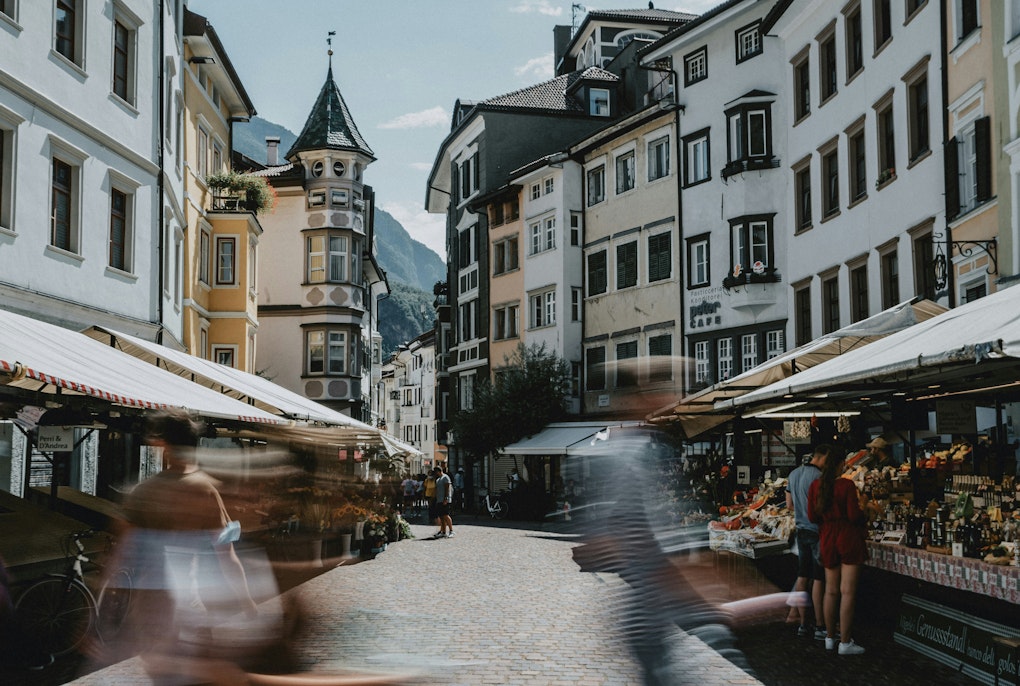
Il limbo dell’esclusione abitativa nell'esperienza migrante


A new European project explores equitable design opportunities
Combating heat islands in cities by providing shade and promoting evapotranspiration are just a couple of the many functions of green areas in cities. But introducing nature-based solutions into urban planning has many other benefits, relevant to improving the quality of life and to helping the transition to a fairer society with lower emissions. But how can these solutions be designed in an effective and equal way? Over the next five years, a consortium of 19 European partners will focus on this issue in the JUSTNature project, which was officially launched only a few days ago. Coordinated by Eurac Research, seven European cities - including Bolzano and Merano - will design and implement nature-based interventions with a participatory, equitable and technologically advanced approach. The work that these cities will carry out will serve as an example for other European centres and will serve to define useful guidelines to encourage the spread of these solutions.
In urban contexts, green roofs are among the most widely used nature-based solutions. In addition to storing rainwater and having a positive effect on the building's climate, green roofs have many other advantages. They are a habitat for various plant and animal species and contribute to the biodiversity of the areas in which they are implemented. The plants they host exchange carbon dioxide for oxygen, thus capturing pollutant emissions, and in summer their natural evapotranspiration helps to keep the temperature in the surrounding area from rising too much. If the roof is accessible, it is also a pleasant recreational area for those who live or work in the building. "When integrated into a comprehensive and forward-looking design, nature-based solutions never have a single function. They have the ability to trigger a chain of positive effects and are therefore a resource for addressing the main challenges that characterize the future of urban centres: decarbonization and social justice. For example, green areas evenly distributed among the neighborhoods of a city not only have ecological benefits, but also help to reduce the differences between the population in terms of their access to well-being," explains Sonja Gantioler, biologist and spatial planning expert at Eurac Research and the project’s coordinator. The JUSTNature project will work precisely on this combination of ecological and social dimensions and by using use state-of-the-art technologies seeks to reduce emissions and mitigate the impact of climate change, ensuring that interventions are designed in an equitable way with far reaching benefits that can be shared throughout the community.
In the seven European cities involved, the initial proposals will be discussed with both citizens and local administrations and modified according to their needs. This process will be used to test a fair system that can be increasingly applied in urban planning. In Bolzano the intention is to work on the industrial area, to see how to counteract the heat islands that form in summer. In Merano, on the other hand, discussions will be held on how to improve the connection between various green areas in Maia Alta and Maia Bassa in order to encourage urban strolls, in keeping with the tradition of the garden city. The project may have only just been launched, but after the initial phase, the working group of Eurac Research and the two municipalities will start planning activities to involve the population.
"In recent years we have been experiencing the effects of global warming in Bolzano. This is why our administration is deeply committed to promoting sustainable mobility, renovating buildings, and implementing nature-based solutions, with the aim of reducing emissions and reversing this trend. With JUSTNature the municipality has the opportunity to continue on this path, analysing the benefits produced by green solutions, and identifying the best ways to involve citizens in urban planning," said Chiara Rabini, the City of Bolzano’s Councillor for Culture, Environment, Integration Policies and Equal Opportunities.
"Merano's green spaces have always been a distinctive marker of the city as well as an agent of wellbeing for both the local community and its tourists. Today our task is to preserve what we have and to integrate it with new natural solutions that not only enhance these features but also help to reduce polluting emissions. From this project, we expect to find out how best to do this, e.g., by improving the analysis of the ecological functionality of each green space or monitoring the effects of each intervention," comments Anni Schwarz, director of Merano's municipal gardens. "Europe's emission reduction targets are becoming increasingly stringent. In order to achieve total decarbonization by 2050, we need to combine increased renewable energy and energy efficiency with measures that capture emissions. Nature-based solutions are becoming increasingly popular in this pressing challenge. We are pleased to support the main municipalities in South Tyrol in this development path and encourage a constructive comparison with other European countries," concludes Wolfram Sparber, director of the Institute for Renewable Energies at Eurac Research.
The project panel comprises 19 partners from eight different European countries. The total project budget exceeds ten million euros including European co-financing of 9.6 million. Approximately two million euros are specifically earmarked for activities in South Tyrol.